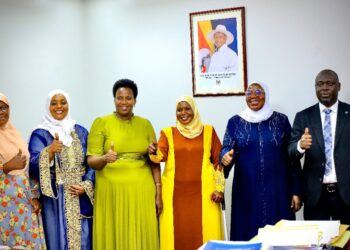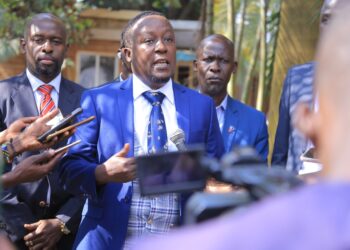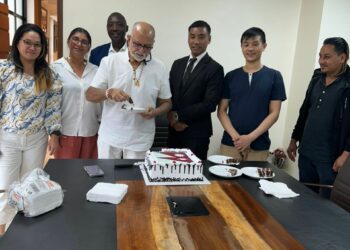I was born many years ago in Bugembe, a small but beautiful village in Jinja District. At that time our home was surrounded by thick bushes, and the only primary school that everyone trusted Nakanyonyi Primary was a long walk away through tall maize gardens. We children were always warned about “abawuuyi”, the kidnappers people said scavenged the area, so every walk to school carried a quiet fear.
Not far from our home stood the Kyabazinga’s palace, once occupied by the late Prime Minister Nadiope. During the turbulent years of Idi Amin it was bombed, a grim sign of how leaders of the past dismissed culture and sought to erase it.
Our roads were dusty and narrow, markets disorganised, and classrooms so bare we often sat on the floor. That was the Uganda of my childhood, a country with little infrastructure, constant insecurity and few opportunities.
When I return to Bugembe today, it feels like another world. The Igenge Palace of the Busoga Kingdom has been fully renovated and restored to its dignity. Culture, which once seemed under threat, is alive and respected. Roads are wide and smoothly tarmacked. Schools stand strong with new classroom blocks, clean paint and trained teachers. What once felt impossible is now daily reality. This transformation in my own village reflects the remarkable journey of the entire country.
Uganda’s progress has been deliberate and hard won. Under the steady leadership of President Yoweri Kaguta Museveni, the economy has more than tripled since 2010/11, growing from Shs 64.8 trillion to Shs 226.3 trillion.
Even in the face of global shocks, it grew by 6.3 percent last year and is projected to grow by 7 percent in the coming financial year, with the promise of double-digit growth once oil production begins.
Inflation is under control at 3.4 percent and the shilling is ranked as Africa’s most stable. Poverty has fallen from 24.5 percent to 16.1 percent, and life expectancy has climbed to 68.2 years. These are not abstract numbers; they represent millions of Ugandans whose daily lives are better than they were a decade ago.
Health services have expanded to reach nearly every corner of the country. Ninety-one percent of Ugandans now live within five kilometres of a health facility. Hospitals are equipped with modern machines, oxygen plants and a strengthened national ambulance system.
Preventive care is saving lives through malaria vaccination, residual spraying and the work of community health extension workers. Education has undergone a similar transformation. Universal Primary Education now serves over 9.5 million learners, while nearly a million students are enrolled under Universal Secondary Education and Post-O’Level Training. Hundreds of new seed schools have been built, teacher inspections are digital, and curricula have been modernised so that children graduate with real skills for a modern economy.
The country’s infrastructure tells the same story of progress. Tarmacked roads now stretch over 6,200 kilometres, linking all border points and opening up trade across the region. Electricity generation has soared from 595 megawatts in 2010 to 2,051 megawatts today, pushing national access to 60 percent and driving down costs for households and businesses.
Uganda Airlines has expanded to seventeen destinations, while Entebbe Airport meets international standards and welcomes travellers from around the world. These investments mean farmers, traders and manufacturers can move their goods quickly and cheaply, and ordinary citizens can travel safely.
Opportunities for wealth creation now reach deep into the countryside. The Parish Development Model has channeled Shs 3.3 trillion to more than 10,000 parishes, benefiting 2.6 million households and helping families move from subsistence to commercial agriculture.
Youth and women’s programmes have financed tens of thousands of enterprises, and the Senior Citizens Grant supports nearly half a million elderly Ugandans. Agriculture itself is no longer the low-yield, rain-dependent activity of the past.
Irrigation capacity stands at 54.7 million cubic metres, and new agro-processing facilities add value to crops, while research institutes have developed vaccines and disease-resistant varieties that protect livestock and improve harvests. Industrial parks across the country host factories that produce electric vehicles, pharmaceuticals, surgical gloves and more, creating over 180,000 jobs.
Tourism and culture, once neglected, are now thriving. Visitor numbers and earnings continue to climb, trails and monuments have been restored, and cultural heritage sites such as the Busoga Kingdom palace I grew up beside now stand proudly as symbols of our identity. These changes generate income for local communities and strengthen national pride.
All of these achievements are the foundation of Uganda’s future, and they have been built through years of consistent leadership and careful planning. As President Museveni goes for nomination today, the task before us is clear. We must protect these gains, economic stability, cultural revival, modern infrastructure, social programmes and the new opportunities they bring.
The journey from the dusty paths of my youth to the paved highways of today shows what determined leadership can accomplish.
Supporting the President is not only about continuing projects; it is about safeguarding the progress already made and ensuring that the transformation of our country reaches every Ugandan and continues for generations to come.
Michael Woira
Patriotic Ugandan
Do you have a story in your community or an opinion to share with us: Email us at editorial@watchdoguganda.com













